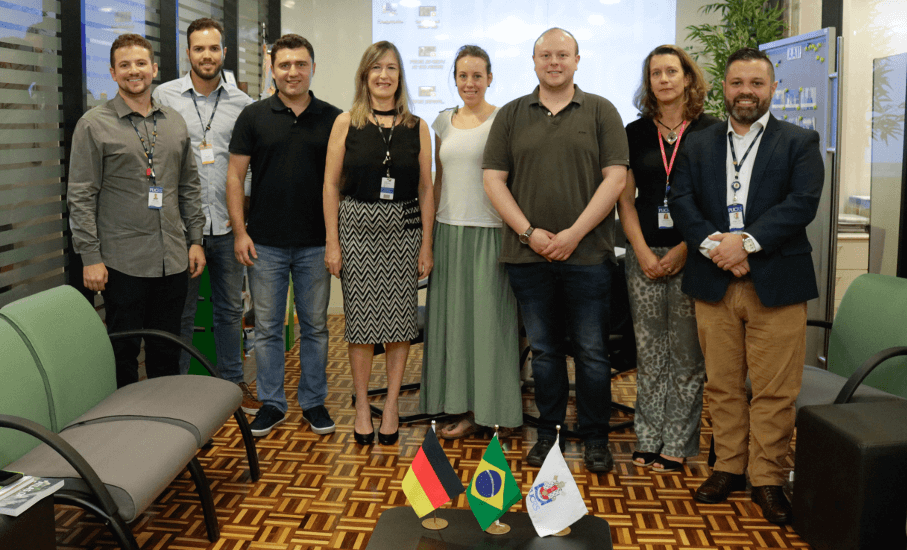TU Dortmund University representatives presented the Atlas of Social Innovation
 German researchers Dmirti Domanski, Marthe Zirngiebl and Hendrik Lager, from the Technische Universität Dortmund, paid PUCRS and its Science and Technology Park (Tecnopuc) a visit to discuss social innovation projects at the institution. The visit on Feb 28 followed an invitation from Dr Lucas Roldan, from the Office of the Vice President for Undergraduate Studies and Research.
German researchers Dmirti Domanski, Marthe Zirngiebl and Hendrik Lager, from the Technische Universität Dortmund, paid PUCRS and its Science and Technology Park (Tecnopuc) a visit to discuss social innovation projects at the institution. The visit on Feb 28 followed an invitation from Dr Lucas Roldan, from the Office of the Vice President for Undergraduate Studies and Research.
The researchers introduced a project named Atlas of Social Innovation, a publication consisting of a number of articles that explore the comprehensive view of several social innovation actions all over the globe. Innovations can be seen in different regions and areas such as education, employment, the environment and climate changes, water supply, transport and mobility, health care and welfare as well as poverty eradication and sustainable development.
The delegation, which was interested in PUCRS’ engagement to social innovation and Service Learning practices, invited the university to contribute to the new version of the Atlas, with an article reporting the good practices at the institution to be included. They also paid a visit to Tecnopuc’s Creativity Laboratory (Crialab). “This visit memorializes new possibilities between PUCRS and Dortmund University. And, in addition to the invitation to contribute to the publication, we had the chance to discuss joint research possibilities on innovation”, says Roldan.
The delegation was welcomed at the Office of International and Institutional Affairs (AAII) and featured the Director of Community Affairs of PUCRS, Dr José Luis Ferraro, the Dean of International Affairs, Dr Heloísa Delgado, and the Coordinator of the Center for European and German Studies (CDEA), Cristiane Kilian.
Students 4 Change
Researcher Dmitri Domanski will be coming back to PUCRS in July to join Students 4 Change, an event intended to include social innovation in curricula and learning environments in Latin America. It has been designed to improve the quality and relevance of the academic programs in relation to the skills students are supposed to develop in order to address social issues affecting their region. The event will be on-site and will mark the end of an online training program offered to around 70 professors from Latin American universities, being sponsored by the European Union. The program will be available soon.